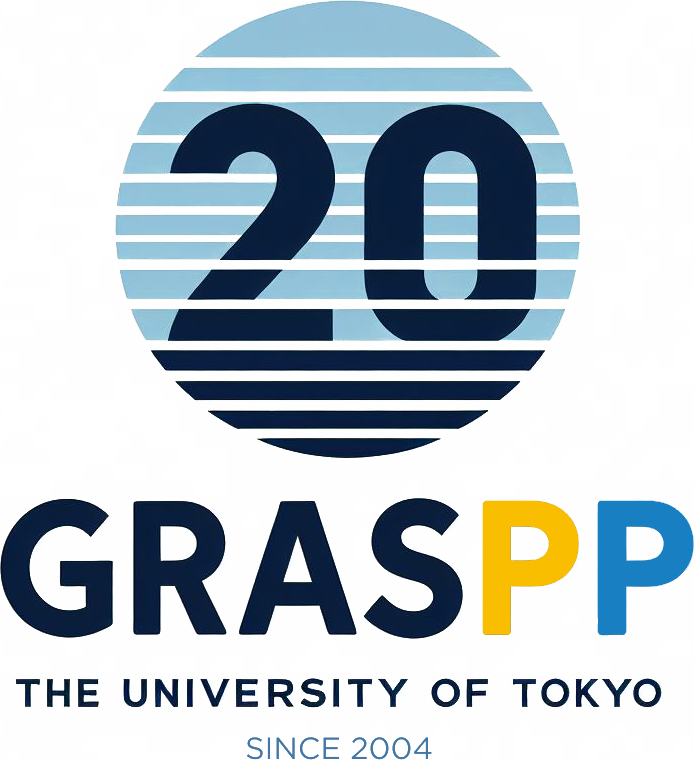キャンセルのお知らせ MLITセミナー(2月6日)
国交省の本日(2月6日)のセミナーは講師の急病のためキャンセルとなりました。ご迷惑をお掛けいたしますが、ご了承くださいますようお願いいたします。
国際企画チーム intl-affairs@pp.u-tokyo.ac.jp
国土交通省の現職職員によるセミナーシリーズ
国土交通省の現職職員がGraSPPにてセミナーを開催いたします(英語によるセミナー)。 国内での政策や制度について、現職職員と意見交換が出来る貴重な機会です。
日本人学生・留学生問わず東大生の皆さん、奮ってご参加ください。 2014年にGraSPP入学予定の方も参加いただけます。
| 日時 | 2月4日(火)16:30-18:00 2月5日(水)14:30-16:00 2月6日(木)16:30-18:00 中止 |
|---|---|
| 場所 | 第二本部棟 7階 第3演習室 |
| 言語 | 英語 |
| ファシリテーター 西沢利郎教授 | |
※質問や不明な点等ありましたら、intl-affairs@pp.u-tokyo.ac.jp(国際企画チーム)までご連絡ください。
MLIT Seminar Series: The Role of MLIT in a Changing Society
Japan is today faced with the new challenges that come with rapid social change, in particular, Japan’s aging society, environmental problems and globalization issues. In this context, MLIT (the Ministry of Land, Infrastructure, Transport and Tourism) has introduced and actively implemented a range of policies that will address social needs and contribute to public well-being.
We believe that sharing our policy objectives with the international community will also broaden our opportunities to contribute to global well-being. With these aims in mind, MLIT is delighted to have this opportunity to introduce ourselves to graduate students at the Graduate School of Public Policy (GraSPP) of The University of Tokyo through a course of lectures on three key topics.
Seminar #1 “Housing and Real Estate Investment Market Policy in Japan”
Date/Time: 2014-02-04 16:30-18:00
Part I: Housing Policy (16:30-17:15)
Japan has a history of rapid development of urban housing stock in order to accommodate the massive growth in urban populations that has occurred since World War II. In this lecture we will consider how Japan provided housing for its growing population through public entities such as the Government Housing Loan Corporation, Public Rental Housing, and the Japan Housing Corporation. The lecture also describes how these policies have been vastly transformed to address current challenges, including an aging society, reduction in CO2 emissions, and preparedness in the event of major disasters.
Part II: Real Estate Investment Market Policy (17:15-18:00)
This lecture will present current conditions in the real estate market in Japan and government policies to stimulate that market. Since J-REIT (the Japan Real Estate Investment Trust) was established in 2001, securitization of real estate property has been accelerated. Although the Lehman Shock depressed the market significantly, the Abe administration, since taking office in December 2012, has taken steps to re-invigorate the market.
Students will learn about the latest government policy with regard to the real estate market as well as the economic impacts that may derive from market growth.
Seminar #2 “Strengthening the International Competitiveness of Metropolitan Areas”
Date/Time: 2014-02-05 14:30-16:00
Backed by rising populations and expanding domestic demand that have led to the high economic growth we have enjoyed sinceWorldWar II, Japanese cities have been able to develop their infrastructure and improve public housing. Japanese cities today, however, face a turning point, due to intense globalization, the aging and decline of their populations, and other challenges.
In this lecture, we will discuss how we can deal with this situation, especially in terms of strengthening the international competitiveness of major cities.
Seminar #3 “Overseas Infrastructure Development by the Japanese Government”
Date/Time: 2014-02-06 16:30-18:00
This lecture gives an introduction to policies for the development of Japanese know-how in infrastructure projects overseas that may contribute to the economic development of developing countries, and addresses difficulties, such as in contract and risk management. The lecture also gives an overview of differences in policy, comparing Japan with other countries.
The lecture is supplemented with case studies and interactive discussions.


